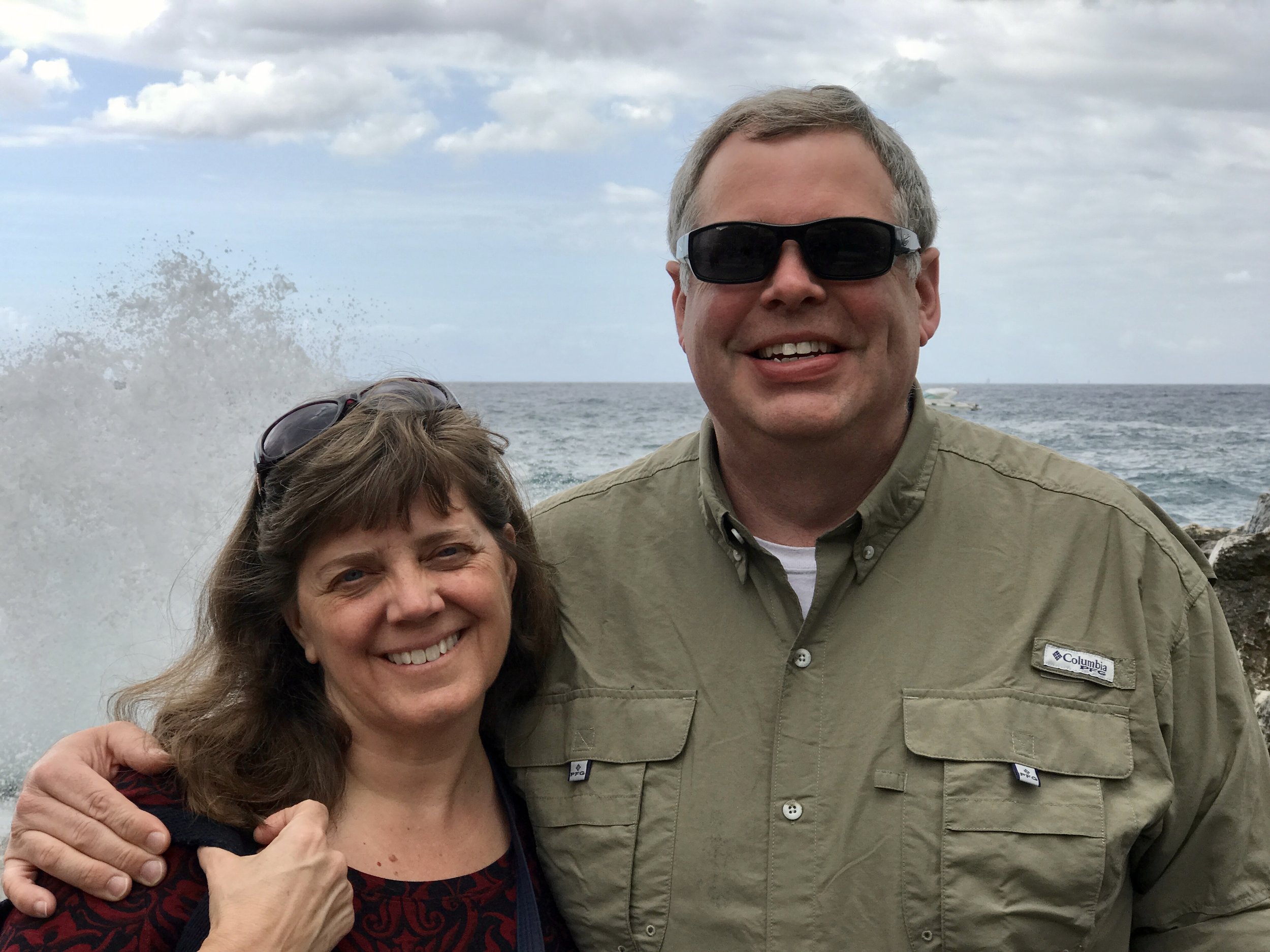Bookmarks: 5 Interesting Articles That May Help You This Week
/October 30th, 2017
 Each week, I select a few articles that rise above the fray and hopefully help you on your journey in the CRE world. They pull from one of four "corners:" corporate real estate, technology, management science and anything positive. I welcome your comments on these articles and the submissions of others (with credit to you if I post them). I wish you a terrific week!
Each week, I select a few articles that rise above the fray and hopefully help you on your journey in the CRE world. They pull from one of four "corners:" corporate real estate, technology, management science and anything positive. I welcome your comments on these articles and the submissions of others (with credit to you if I post them). I wish you a terrific week!
As Amazon Moves In, Demand for Warehouse Space Climbs"For the modest warehouse, this is a golden age.
Boxy, unadorned and often overlooked, these properties are suddenly in hot demand in many parts of the country, thanks in part to a rise in e-commerce as consumer shopping habits move online. Retailers like Amazon and Walmart are snapping up space once reserved for makers of office furniture and home flooring.
For years now, consumers have been purchasing more products online. In the second quarter, e-commerce sales topped more than $111 billion on a seasonally adjusted basis, or 8.9 percent of all retail sales, according to the Census Bureau. Industry forecasters expect e-commerce sales to continue growing.
Warehouses often reveal little about what goes on within their walls, but the buildings make possible the rapid delivery that consumers now expect from online retailers. They serve as storage and distribution points for products ranging from auto parts to pharmaceuticals. And warehouse jobs have grown rapidly since 2010, forming a critical part of the employment base in communities across the country.
As developers try to catch up, they are considering some unusual solutions, like constructing multistory warehouses and demolishing struggling malls to make way for sprawling industrial properties.." www.nytimes.com
[tweet_box design="box_09" float="none"]For the modest warehouse, this is a golden age.[/tweet_box]
All Management Is Change Management"Leaders should view change not as an occasional disruptor but as the very essence of the management job. Setting tough goals, establishing processes to reach them, carrying out those processes and carefully learning from them — these steps should characterize the unending daily life of the organization at every level. More companies need to describe their work in terms of where they are trying to go in the next month or next quarter or next year." www.hbr.org
[tweet_box design="box_09" float="none"]#Leaders should view change not as an occasional disruptor but as the very essence of the management job[/tweet_box]
Retail Apocalypse? The Sky Isn't Falling -- The Sector Is Just Evolving"The reality is that stores close – it’s a part of this business. Consumer's tastes have always fluctuated, but with the rise of the internet and social media, the rate of change has been expedited. As a result, brands and categories fall-out of favor much faster, which initiates the open/closure cycle more rapidly. There is no doubt that e-commerce penetration, especially in certain categories, has also contributed to this exacerbated pace of change – it’s just not the great "disruptor" that many would have you believe." www.forbes.com
How Retailers Use Personalized Prices to Test What You’re Willing to Pay"Whether personalized pricing catches on with web retailers is now up to consumers. Will shoppers be comfortable knowing that the prices they are offered may be higher than those presented to others? Will buyers relish “electronically bargaining” to outwit sellers? Retailers first “negotiate” with each customer by personalizing prices based on their profile. In response, savvy shoppers will “bargain” by checking prices on different devices, clearing caches, using the app, conducting multiple searches, asking friends in different cities to see what price they’re quoted, and so on. Or will they become fed up and steer clear of web retailers that price profile? Amazon is on the record as stating that all of its customers see the same prices — will other retailers be so clear-cut?
As the fate of electronic price profiling shakes out, one issue is clear: It is truly a caveat emptor environment for shoppers who use the web." www.hbr.org
Why You Can Focus in a Coffee Shop but Not in Your Open Office"So why do so many of us hate our open offices? The quiet chatter of colleagues and the gentle thrum of the HVAC should help us focus. The problem may be that, in our offices, we can’t stop ourselves from getting drawn into others’ conversations or from being interrupted while we’re trying to focus. Indeed, the EEG researchers found that face-to-face interactions, conversations, and other disruptions negatively affect the creative process. By contrast, a coworking space or a coffee shop provides a certain level of ambient noise while also providing freedom from interruptions.
Taken together, the lesson here is that the ideal space for focused work is not about freedom from noise, but about freedom from interruption. Finding a space you can hide away in, regardless of how noisy it is, may be the best strategy for making sure you get the important work done." www.hbr.org[tweet_box design="box_09" float="none"]..the ideal space for focused work is not about freedom from noise, but about freedom from interruption[/tweet_box]Your success blesses others. I wish you a great a hugely impactful week!Ken



 So, I did make it stop, for a brief respite anyway.You see, Karen and I planned a 25th wedding anniversary trip to Italy, so I began to dream about unplugging from email. The last time I stopped the digital river of information was in 2012 when I took a backpacking trip in New Mexico with my son. I wrote about it in one of my most popular blogs called
So, I did make it stop, for a brief respite anyway.You see, Karen and I planned a 25th wedding anniversary trip to Italy, so I began to dream about unplugging from email. The last time I stopped the digital river of information was in 2012 when I took a backpacking trip in New Mexico with my son. I wrote about it in one of my most popular blogs called  So I made a tough call. I was not going to ever read a single email sent to me while I was traveling on my vacation. All of them were going to hit the trash can with a punch of a few keys in a mass delete action. Bam!I'm Really Out of the Office And On Vacation. For Real.I penned my out of office with a guilty grin. Here it is:"Thanks for your email. I am currently out of the country on vacation. Karen and I are in Italy celebrating 25 years of marriage, 4 kids and 1 very lazy dog. The kids and the dog are at home. We wish them luck.I return to the office and real life on <date>. My plan is to mass delete all emails while I'm away, so kindly email me again after my return and I will return your message with a big smile on my face. I appreciate your understanding and patience during this much needed downtime. So does Karen.
So I made a tough call. I was not going to ever read a single email sent to me while I was traveling on my vacation. All of them were going to hit the trash can with a punch of a few keys in a mass delete action. Bam!I'm Really Out of the Office And On Vacation. For Real.I penned my out of office with a guilty grin. Here it is:"Thanks for your email. I am currently out of the country on vacation. Karen and I are in Italy celebrating 25 years of marriage, 4 kids and 1 very lazy dog. The kids and the dog are at home. We wish them luck.I return to the office and real life on <date>. My plan is to mass delete all emails while I'm away, so kindly email me again after my return and I will return your message with a big smile on my face. I appreciate your understanding and patience during this much needed downtime. So does Karen. If you need help now, then contact my teammate <name> who can get you taken care of."That's it. And you know what, it worked!
If you need help now, then contact my teammate <name> who can get you taken care of."That's it. And you know what, it worked! We spent 8 glorious days refreshing our relationship and exploring the big world out there. I got around 1,800 messages during my time away and I gleefully hit delete. There were about 4 issues that needed my immediate attention when I got back, but I missed all the emails on all the meetings, issues and problems that I couldn't attend or attend to.I clearly remember the relief of allowing myself to be present on our vacation AND not having to worry about digging out when I returned.
We spent 8 glorious days refreshing our relationship and exploring the big world out there. I got around 1,800 messages during my time away and I gleefully hit delete. There were about 4 issues that needed my immediate attention when I got back, but I missed all the emails on all the meetings, issues and problems that I couldn't attend or attend to.I clearly remember the relief of allowing myself to be present on our vacation AND not having to worry about digging out when I returned. Do I have a great team to back stop me and allow for this break to occur? Absolutely! Do I have understanding and cool clients? You bet! Am I so important that I need to be continuously connected and available at all times? Nope, not at all.And unless you are in charge of national security for the United States or some other ridiculously high stress gig, you aren't either. Heck, even firefighters and cops have days off from emergencies.I Dare YouToday I attended the funeral of a good friend, Scott Selig. Scott passed away at age 47 from an aggressive form of cancer. The loss of my friend has given me needed perspective and even more resolve on the email issue. As Scott himself said in a moving speech before he died, "put down the phone and enjoy life".I dare you to put up appropriate boundaries around your personal time.
Do I have a great team to back stop me and allow for this break to occur? Absolutely! Do I have understanding and cool clients? You bet! Am I so important that I need to be continuously connected and available at all times? Nope, not at all.And unless you are in charge of national security for the United States or some other ridiculously high stress gig, you aren't either. Heck, even firefighters and cops have days off from emergencies.I Dare YouToday I attended the funeral of a good friend, Scott Selig. Scott passed away at age 47 from an aggressive form of cancer. The loss of my friend has given me needed perspective and even more resolve on the email issue. As Scott himself said in a moving speech before he died, "put down the phone and enjoy life".I dare you to put up appropriate boundaries around your personal time. I dare you to talk to your clients, colleagues and friends and explain that you need downtime too.I dare you to confront your own addiction to this world of hyper responsiveness and over communication in which we live.Be bold on this issue and your spouse, your family and ultimately your circle of friends and business colleagues will thank you. They will notice your new found focus and crisp response to issues because you have allowed yourself permission to rest.Ray Tomlinson passed away a few years ago, but if he were still with us today, I bet you he'd give 2 thumbs up to email breaks. As Steven Covey said, even the best lumberjack has to sharpen his saw to be effective.Time away is what intelligent executives use to freshen up, relax and reflect. In the times when you are getting away, email is toxic and will defeat the purpose. Be courageous and self confident in stopping the digital intrusion.Do it. You won't regret the digital break, I promise.
I dare you to talk to your clients, colleagues and friends and explain that you need downtime too.I dare you to confront your own addiction to this world of hyper responsiveness and over communication in which we live.Be bold on this issue and your spouse, your family and ultimately your circle of friends and business colleagues will thank you. They will notice your new found focus and crisp response to issues because you have allowed yourself permission to rest.Ray Tomlinson passed away a few years ago, but if he were still with us today, I bet you he'd give 2 thumbs up to email breaks. As Steven Covey said, even the best lumberjack has to sharpen his saw to be effective.Time away is what intelligent executives use to freshen up, relax and reflect. In the times when you are getting away, email is toxic and will defeat the purpose. Be courageous and self confident in stopping the digital intrusion.Do it. You won't regret the digital break, I promise.